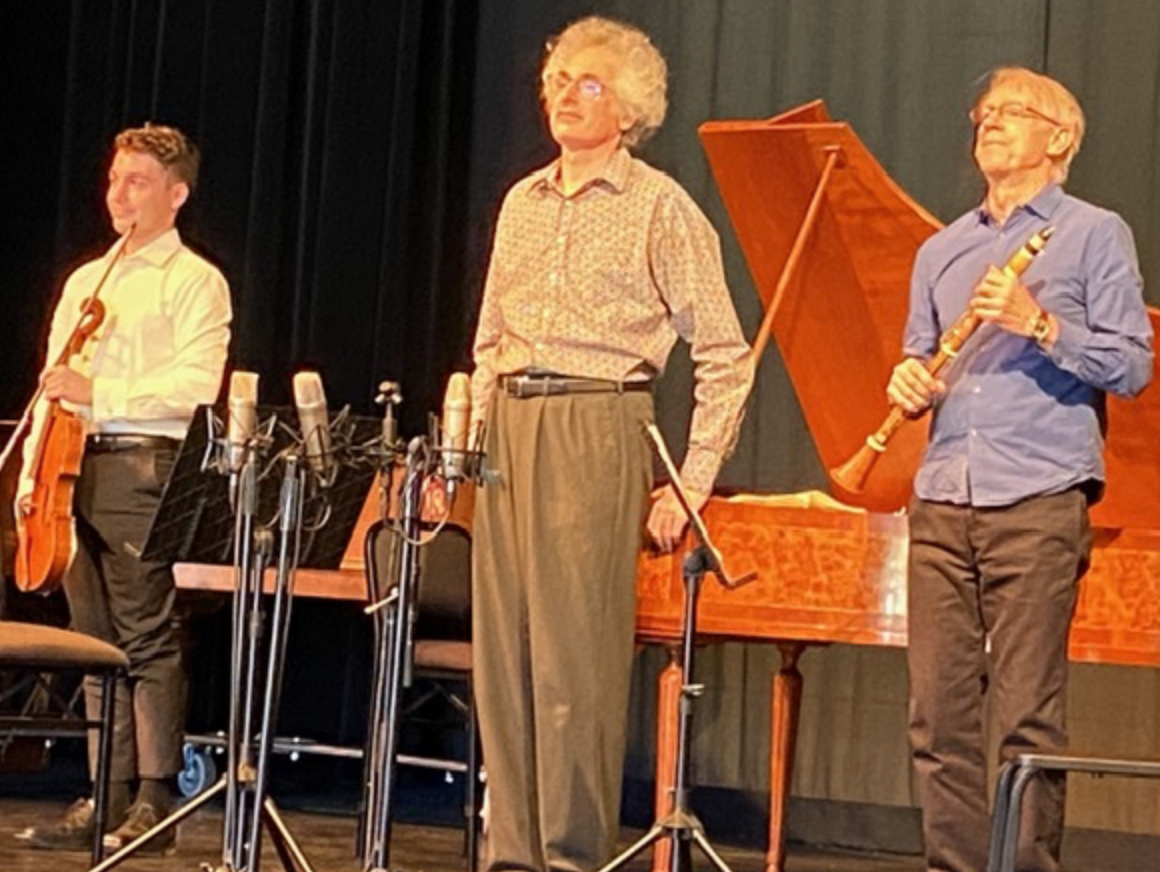|
Symphony
SRS SEASON ENDS WITH RESOUNDING TA-TA-TA-BANG
by Terry McNeill
Sunday, June 1, 2025
Symphony
YOUTHFUL VIRTUOSITY ON DISPLAY AT USO'S MAY CONCERTS
by Peter Lert
Saturday, May 17, 2025
Symphony
MYSTICAL PLANETS AND LIVELY GERSHWIN ORTIZ AT FINAL SRS CONCERT
by Peter Lert
Sunday, May 4, 2025
Symphony
VSO'S CONCERT MUSIC OF TIME, MUSIC OF PLACE
by Peter Lert
Sunday, April 27, 2025
Choral and Vocal
VOCAL ELEGANCE AND FIRE AT THE 222'S RECITAL APRIL 26
by Pamela Hicks Gailey
Saturday, April 26, 2025
CANTIAMO SONOMA SINGS AN INSPIRED GOOD FRIDAY MOZART REQUIEM CONCERT
by Pamela Hicks Gailey
Friday, April 18, 2025
DRAMATIC SHOSTAKOVICH SYMPHONY CLOSES PHILHARMONIC'S 25TH SEASON
by Terry McNeill
Sunday, April 13, 2025
LARGE COLLEGE OF MARIN AUDIENCE GREETS STOPHER ARTISTRY
by Terry McNeill
Saturday, April 5, 2025
Chamber
FRISSON DELIVERS SHIVERS OF DELIGHT
by Abby Wasserman
Sunday, March 30, 2025
OLD AND MOSTLY NEW IN SRS MARCH CONCERT IN WEILL
by Peter Lert
Saturday, March 22, 2025
|
 |
 S. Van Embden E. Zivian E. Hoeprich |
MOZART AND BRAHMS AN AUSPICIOUS COUPLE AT VMMF FESTIVAL
by Terry McNeill
Sunday, July 17, 2022
Is there such a thing as summer music? Something lighter than heard in the winter season, with much informality? The Valley of the Moon Chamber Music Festival specializes in this approach, and July 17 presented a concert in Sonoma Valley’s Hanna Center that even produced lightweight Brahms.
Before 90 people in the Hanna Center’s Hall came first Mozart’s popular E-Flat Major Trio, K. 498 (“Kegelstatt”) with exemplary clarinetist Eric Hoeprich, violist Seth Van Embden and the Festival’s codirector Eric Zivian playing a inlaid case fortepiano c. 1800. The contrast between the luscious clarinet sound and the viola line was pronounced, all to Mr. Hoeprich’s favor as Mr. Van Embden could always be seen but not often heard.
There was never a real Forte from the piano during the entire work, though many chaste figurations came from Mr. Zivian’s consummate control of his instrument with legato right hand scales. Mr. Hoeprich’s dynamic control was exemplary, and the Menuetto had a slight menacing air with short animated phrases going back and forth with the viola part. Wonderful Mozart with a Rondo finale that was continuously singing.
Moving from the fortepiano to an 1895 Chickering from the UC Berkeley’s collections, Mr. Zivian performed three Brahms songs with Festival stalwart tenor Kyle Stegall. It was captivating Brahms, the most familiar being the Regenlied of Op. 59, No. 3. Mr. Stegall’s supple but often forceful voice journeyed through the eight stanzas with palpable emotion, and his held notes leading to short pauses were convincing. O kühler Wald (Op. 72, No. 3) and Nachklang from Op. 59 were the other lieder, both sung with accurate German and intonation.
Completing the program was the Brahms G Major Sonata, Op. 78, performed by Mr. Zivian using the Chickering, and violinist Lisa Lee. Tempos were judicious in the opening Vivace where Ms. Lee, playing from score, had intonation difficulties. The violinist chose an intimate style throughout, seemingly suited to summer music but eschewing adequate projection of the composer’s majestic themes. The pizzicato at the beginning of the development was effectively played. At the final bars of the first movement the piano line descends to a potent bass rumble, and the violin in the top register needs to soar, but here it never did.
Ms. Lee’s sound was best in the viola-like lower registers of her instrument where she and Mr. Zivian exchanged motives. Though one should concentrate on just the produced sound, and not the performer’s movements, Mr. Zivian loved to stress off-beat agogics in concert with wide body swaying, including twice bringing his head nearly horizontal with the piano’s keyboard. Inner voices in the concluding Allegro from the pianist were beneficial and frequently unique. He was having a good time.
Instrumental balances in the Sonata were good. No encore was offered, and a gratis reception welcomed the audience on the Hall’s patio.
|

